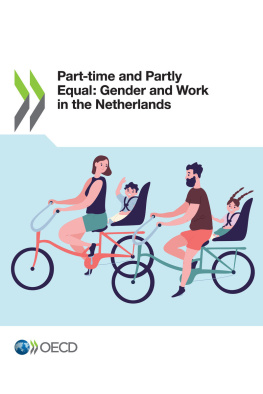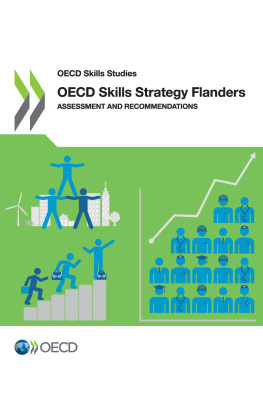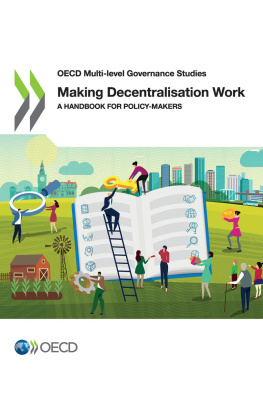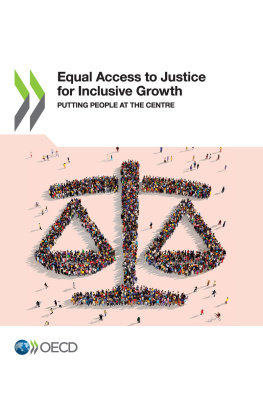OECD - Part-time and Partly Equal: Gender and Work in the Netherlands
Here you can read online OECD - Part-time and Partly Equal: Gender and Work in the Netherlands full text of the book (entire story) in english for free. Download pdf and epub, get meaning, cover and reviews about this ebook. year: 2019, publisher: OECD Publishing, genre: Home and family. Description of the work, (preface) as well as reviews are available. Best literature library LitArk.com created for fans of good reading and offers a wide selection of genres:
Romance novel
Science fiction
Adventure
Detective
Science
History
Home and family
Prose
Art
Politics
Computer
Non-fiction
Religion
Business
Children
Humor
Choose a favorite category and find really read worthwhile books. Enjoy immersion in the world of imagination, feel the emotions of the characters or learn something new for yourself, make an fascinating discovery.
- Book:Part-time and Partly Equal: Gender and Work in the Netherlands
- Author:
- Publisher:OECD Publishing
- Genre:
- Year:2019
- Rating:4 / 5
- Favourites:Add to favourites
- Your mark:
- 80
- 1
- 2
- 3
- 4
- 5
Part-time and Partly Equal: Gender and Work in the Netherlands: summary, description and annotation
We offer to read an annotation, description, summary or preface (depends on what the author of the book "Part-time and Partly Equal: Gender and Work in the Netherlands" wrote himself). If you haven't found the necessary information about the book — write in the comments, we will try to find it.
OECD: author's other books
Who wrote Part-time and Partly Equal: Gender and Work in the Netherlands? Find out the surname, the name of the author of the book and a list of all author's works by series.
Part-time and Partly Equal: Gender and Work in the Netherlands — read online for free the complete book (whole text) full work
Below is the text of the book, divided by pages. System saving the place of the last page read, allows you to conveniently read the book "Part-time and Partly Equal: Gender and Work in the Netherlands" online for free, without having to search again every time where you left off. Put a bookmark, and you can go to the page where you finished reading at any time.
Font size:
Interval:
Bookmark:
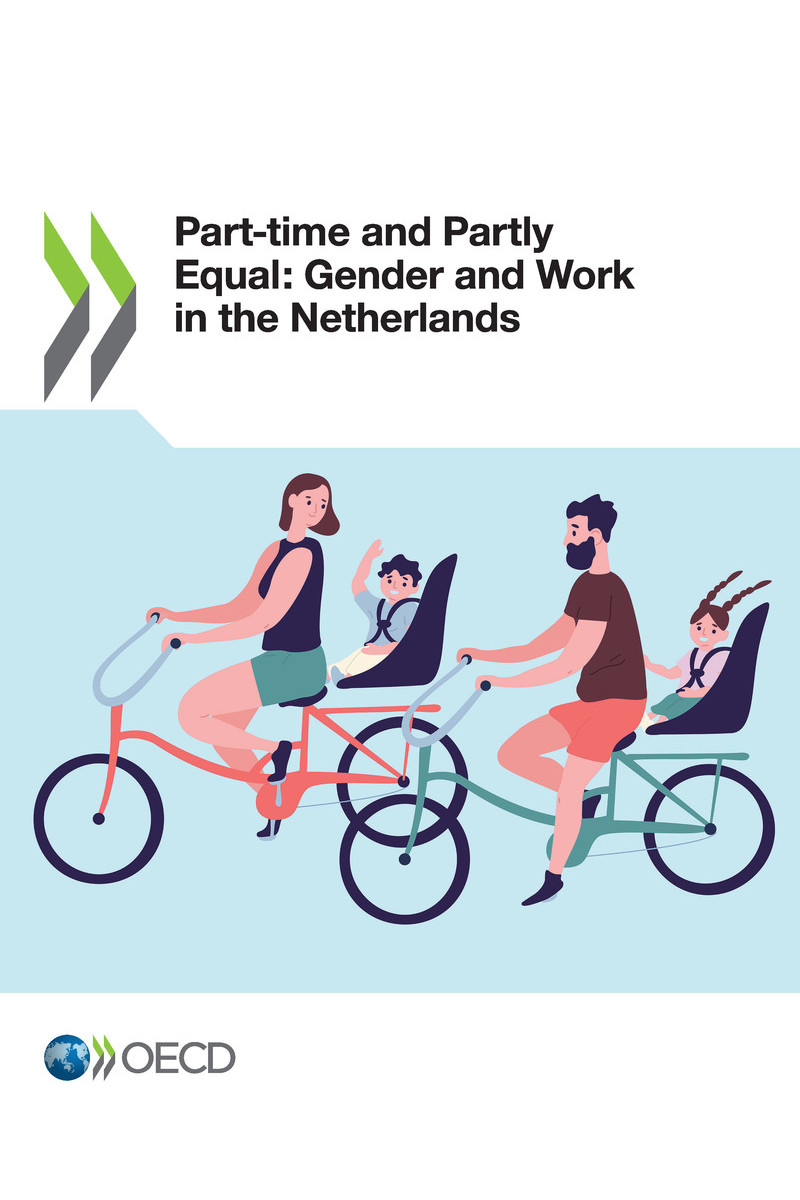
OECD (2019), Part-time and Partly Equal: Gender and Work in the Netherlands , OECD Publishing, Paris, https://doi.org/10.1787/204235cf-en .
Societies may tout the benefits of part-time work, but such conversations often overlook a crucial consequence that part-time jobs are disproportionately held by women, with negative effects on gender equality at home and in the labour market. Part-time work is often associated with slower career progression, lower earnings, lower earnings-related pensions, and, in many countries, lower job quality than that experienced by full-time workers
The OECD has long championed gender equality through the OECD Gender Initiative, which has produced an extensive stream of research assessing policies to promote gender equality in different countries. OECD data and reports have been crucial for raising the profile of the gender agenda internationally, including by securing strong commitments by G20 and G7 leaders. This report, Part time and partly equal, takes a close look at the Netherlands and assesses whether and how part-time jobs can work for women. It asks an important question: how can governments and employers foster workplace flexibility without disadvantaging women?
The OECD report was prepared in the OECD Directorate for Employment, Labour and Social Affairs (ELS), under the supervision of Willem Adema and under the senior leadership of Stefano Scarpetta (Director of ELS), Mark Pearson (Deputy Director of ELS) and Monika Queisser (Head of Social Policy).
The report was written by Valerie Frey, with valuable contributions from Chris Clarke and Willem Adema. The report benefited from comments and feedback from Mark Baker, Boele Bonthuis, Andrea Garnero, Maciej Lis, Ana Llena Nozal, Annabelle Mourougane, Monika Queisser, the Dutch authorities, and Delegates to the OECD Employment, Labour and Social Affairs Committee. Liv Gudmundson prepared the report for publication, with Fatima Perez, Lucy Hulett, and Alastair Wood providing further logistical, publication and communications support.
The OECD gratefully acknowledges financial support by the Kingdom of the Netherlands towards the preparation of this report.
The Netherlands performs well on many measures of gender equality, but the country continues to face a major challenge in reaching equality between women and men: the high share of women in part-time jobs. Nearly 60% of women in the Dutch labour market work part-time, roughly three times the rate for Dutch men and the OECD average for women. The Netherlands gender gap in hours worked has pernicious effects on the gender gap in earnings, the gender gap in pensions, womens slower progression into management roles, and the unequal division of unpaid work at home.
The gender gap in hours worked widens when partners become parents, as mothers in the Netherlands like in much of the world often reduce their time in the labour market to take on more unpaid caregiving responsibilities. A majority of mothers and fathers in the Netherlands report wanting to share an equal distribution of care work, but under 40% say that this happens in practice.
The large gender gap in part-time work shows little sign of abating. While Dutch men are more likely to work part-time now than they were in the 1980s, so too are Dutch women. The gender gap in part-time work status has hovered at around 40 percentage points over the past thirty years.
How can the government of the Netherlands encourage a more equal distribution of paid and unpaid work hours? The government must pursue a multi-pronged approach. Policy measures should:
Encourage fathers to take more parental leave and do more caregiving throughout the life course, and change societal expectations that mothers should be the parent who works part-time.
Improve access to high-quality, affordable childcare.
Improve the reliability of school schedules and offer more social supports before and after the school day.
Reform marginal effective tax rates to encourage more full-time work among both partners in couple households.
Strengthening the policy environment, so that it provides a continuum of supports to working parents throughout their childrens early years, will help parents better achieve their work-life balance aspirations. Better policy supports can help level the playing field between men and women, contribute to more egalitarian norms around the division of work, and foster more gender-equal behaviours in paid and unpaid work in the Netherlands.
Nearly 40% of all workers in the Netherlands work part-time a rate that is higher than in all other countries in the OECD. The availability and take-up of part-time work has been lauded for helping workers achieve work-life balance and promoting personal well-being .
Women make up a large share of the part-time workforce in the Netherlands and, indeed, around the world. This leads to the unintended negative consequence of deepening gender inequalities. Inequalities deepen in the unequal division of paid work, as men are better able to commit time to (and advance in) full-time jobs. Correlated with this, inequalities are reinforced and grow in the unequal division of unpaid work at home, as women tend to do more housework and childcare than their spouses. This represents a serious economic and moral challenge for the Netherlands.
Government policies promoting gender equality must therefore consider the distribution of part-time work, while regulations around part-time work should be designed and reformed with gender equality goals in mind. Policies enabling part-time work can respect personal or family preferences, but should also ensure that both men and women have equal opportunities to contribute at home and at work. The Netherlands has been recognised as having relatively strong protections for part-time work and has made notable efforts to ensure good job quality for part-time workers, but the country has been less successful in eliminating gender inequalities in hours worked.
Font size:
Interval:
Bookmark:
Similar books «Part-time and Partly Equal: Gender and Work in the Netherlands»
Look at similar books to Part-time and Partly Equal: Gender and Work in the Netherlands. We have selected literature similar in name and meaning in the hope of providing readers with more options to find new, interesting, not yet read works.
Discussion, reviews of the book Part-time and Partly Equal: Gender and Work in the Netherlands and just readers' own opinions. Leave your comments, write what you think about the work, its meaning or the main characters. Specify what exactly you liked and what you didn't like, and why you think so.

